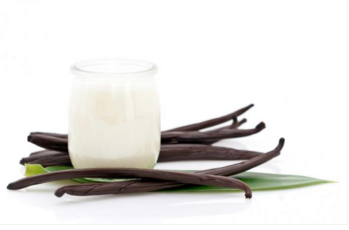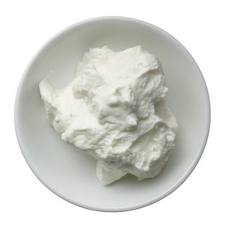Eating something pleasant or equally unpleasant can change a persons mood is not a surprise to any of us.
But according to new research in Food Research International vanilla yogurt made people feel happy according to the latest tests, researchers say.

It is widely accepted that emotional reactions to the consumption of foods or the perception of fragrances play an important role in successful sales.
Until now emotional reactions have not been fully investigated. But a team of researchers from the Netherlands, Austria and Finland, used four different techniques to measure people’s emotional responses, and to find out what emotional effects, if any, eating different yogurt had on people.
Three groups of around24 participants were each given a pair of yogurts to taste, and the four tests were carried out around this activity. The pairs of yogurts were of the same brand and were marketed in the same way, but they had different flavours or fat content.
The four methods used to measure emotional response were:
1. Face reading during consumption
2. A new emotive projection test (EPT)
3. An autobiographical reaction time test based on mood congruency
4. Eye tracking to measure the impact of the packaging.
EPT was used to determine the effect of different yogurts on people’s moods. Participants were shown photographs of other people and asked them to rate the people in the photographs on six positive and six negative traits before and after eating the yogurt. The idea is that people project their emotions onto others, thus giving an indication of their own mood.
The eye-tracking test aims to characterize gazing behaviour and visual attraction of stimuli, and was used to evaluate the food packaging. Gazing behaviour can be influenced by emotional reactions, but the results of the eye-tracking measurements are not able to describe emotion states.
Comparing eye-tracking measurements before and after eating the yogurt showed the effects of familiarity but not necessarily emotion.
The team found that that liking or being familiar with a product had no effect on a person’s emotion. What did affect the emotions was changes in attitude to the food after tasting it. Being pleasantly surprised or disappointed about the food appears to influence people’s moods.
Positive response to low-fat yogurts
The team also looked at the sensory effect of the yogurts. There was no difference in the emotional responses to strawberry versus pineapple yogurts, but low-fat versions led to more positive emotional responses.
Most strikingly, vanilla yogurt elicited a strong positive emotional response, supporting previous evidence that a subtle vanilla scent in places like hospital waiting rooms can reduce aggression and encourage relationships among patients and between patients and staff.
The team found that eating vanilla yogurts made people feel happy and that yogurts with lower fat content gave people a stronger positive emotional response.
They also found that even if people reported differences in liking them, yogurts with different fruits did not show much difference in their emotional effect.
Lead author of the study, Dr. Jozina Mojet from the Netherlands, said: “This kind of information could be very valuable to product manufacturers, giving them a glimpse into how we subconsciously respond to a product. We were surprised to find that by measuring emotions, we could get information about products independent from whether people like them.”


